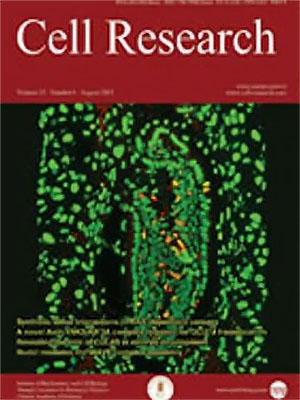
Volume 11, No 4, Dec 2001
ISSN: 1001-0602
EISSN: 1748-7838 2018
impact factor 17.848*
(Clarivate Analytics, 2019)
Volume 11 Issue 4, December 2001: 253-264
REVIEWS
Molecular signal transduction in vascular cell apoptosis
GENG Yong Jian
Center for Cardiovascular Biology and Atherosclerosis Research, Division of Cardiology, Department of Internal Medicine, University of Texas Houston Health Science Center Medical School, 6431 Fannin Street, MSB 6.045, Houston, TX 77030, USA
Correspondence:
Apoptosis is a form of genetically programmed cell death, which plays a key role in regulation of cellularity in a variety of tissue and cell types including the cardiovascular tissues. Under both physiological and pathophysiological conditions, various biophysiological and biochemical factors, including mechanical forces, reactive oxygen and nitrogen species, cytokines, growth factors, oxidized lipoproteins, etc., may influence apoptosis of vascular cells. The Fas/Fas ligand/caspase death-signaling pathway, Bcl-2 protein family/mitochondria, the tumor suppressive gene p53, and the proto-oncogene c-myc may be activated in atherosclerotic lesions, and mediates vascular apoptosis during the development of atherosclerosis. Abnormal expression and dysfunction of these apoptosis-regulating genes may attenuate or accelerate vascular cell apoptosis and affect the integrity and stability of atherosclerotic plaques. Clarification of the molecular mechanism that regulates apoptosis may help design a new strategy for treatment of atherosclerosis and its major complication, the acute vascular syndromes.
FULL TEXT | PDF
Browse 4087


